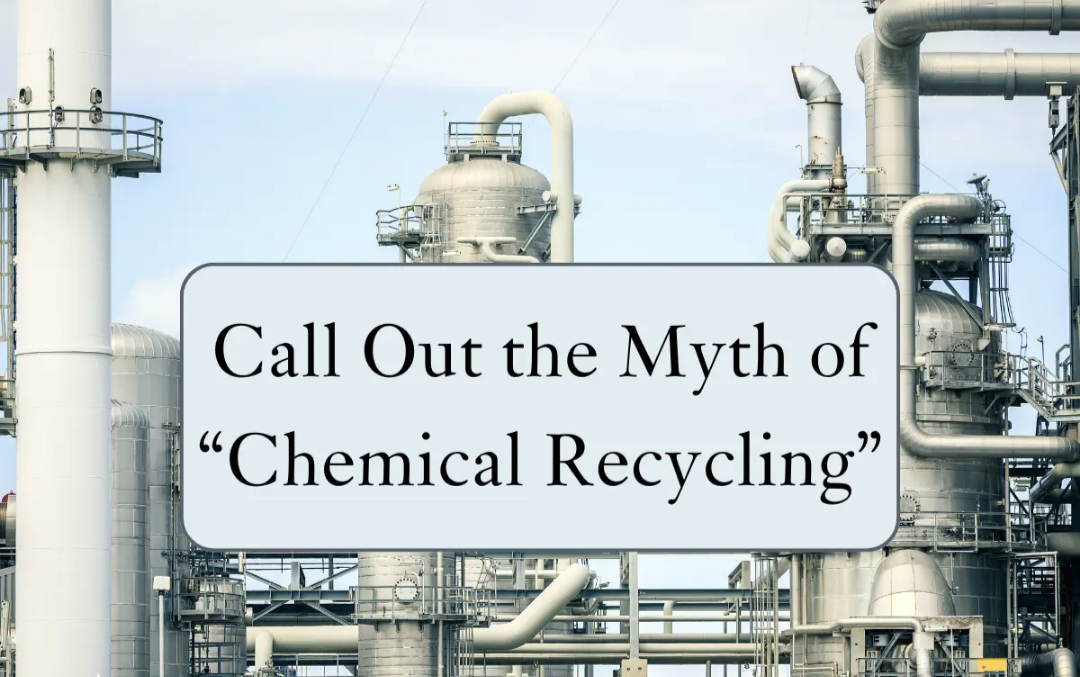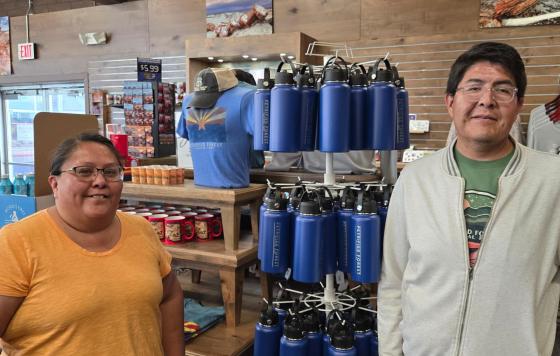
Plastics recycling has been an abysmal failure. Nationwide, we recycle less than 10% of all plastic produced. The petrochemical industry and plastics companies have known this for decades but have still worked hard to convince the public and decision-makers that we can somehow recycle our way out of the growing plastics crisis. Their latest idea, so-called “chemical recycling,” is, first and foremost, a public relations strategy meant to distract from better solutions. Rather than waste money on expensive, polluting facilities, Rhode Island should pursue strategies that reduce the amount of plastic produced and consumed in the first place.
The petrochemical lobby would have you believe that so-called “chemical recycling” facilities are recycling plastic. In most cases, that is not true. Most of the facilities that have been built are actually “plastics to fuels” operations that melt plastics and extract low-grade liquid fossil fuels to be burned elsewhere. Extracting natural gas from the ground, processing it into a single-use plastic water bottle someone drinks from one time, and then turning it back into a fossil fuel to be burned isn’t what the public is imagining when they hear “recycling.”
And this process comes at a cost. Plastics can contain thousands of different toxic chemicals which are transferred into the air as emissions or into the solid waste byproducts of plastic-to-fuel operations, and these facilities place a heavy toxic burden on communities near these sites as well as near the sites where the byproducts of these processes are ultimately disposed of or burned. One such “chemical recycling” facility in Washington produced nearly 500,000 pounds of hazardous waste in one year alone, which was sent to six different locations in the U.S. for eventual disposal or incineration.
Here in Rhode Island, we're not falling for it! Clean Water Action is supporting legislation to protect Rhode Islanders. The High Heat Waste Facility Act (H7357 and S2303) will ensure that these polluting facilities are not constructed in our state.
At the same time, we support real solutions to the plastic pollution crisis that emphasize source reduction – making and consuming less plastic in the first place. We successfully fought for bans on single-use plastic bags and polystyrene food containers, both hard-to-recycle items. A good next step would be banning PVC and polystyrene which are difficult to recycle and toxic to produce.
We're also working to draft a strong Rhode Island bottle bill. Plastic beverage containers collected separately from curbside collection can be mechanically recycled back into new beverage containers. Ultimately, this can serve as a transition to reuse and refill systems that don’t leave a toxic trail of plastic waste behind.
And, through our ReThink Disposable program, we’re helping restaurants and schools stop plastic waste before it even starts by switching from single-use disposable dining ware to durable reusables. Nationally, restaurants and institutions participating in ReThink are already preventing over 28 MILLION pieces of disposable food ware yearly! And we’re just getting started in Rhode Island!
We’re a small state with a massive coastline. Plastic pollution impacts our waterways and our beaches. We need serious policy solutions, not expensive boondoggles sold to us by people with an interest in keeping us hooked on plastic and fossil fuels. This Earth Month, let’s call out the industry myths and support real solutions to reduce plastic pollution!
Take action! Nominate your favorite local restaurant for ReThink Disposable!


